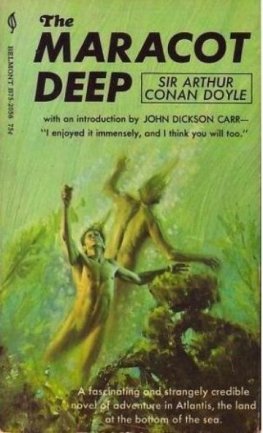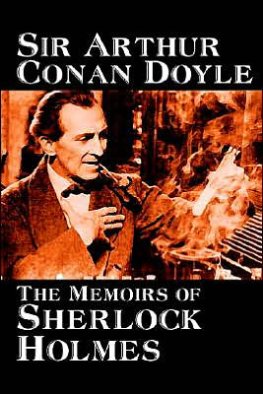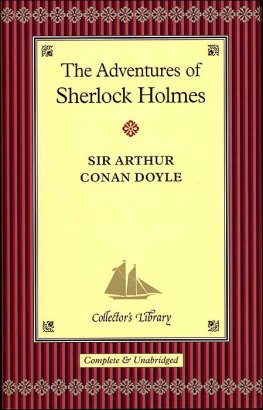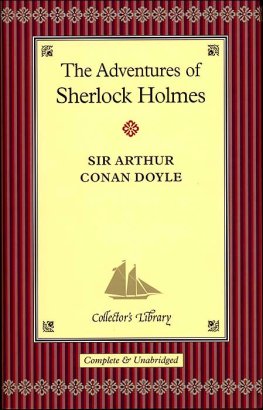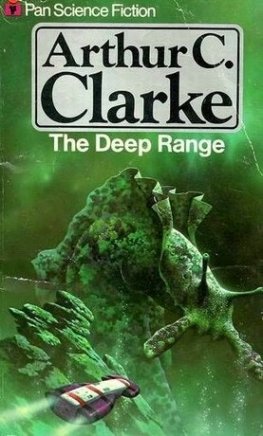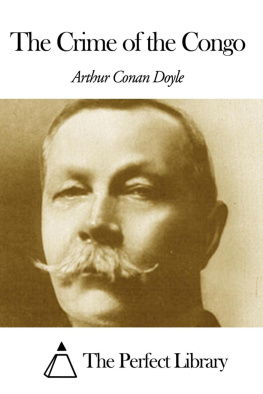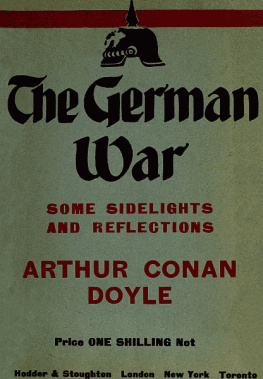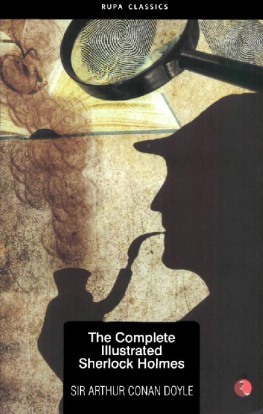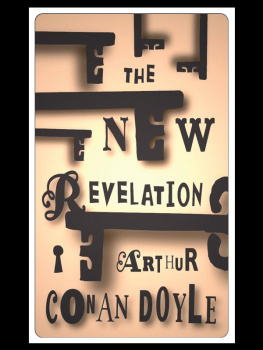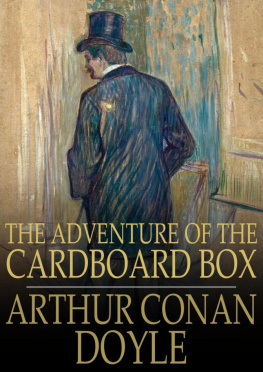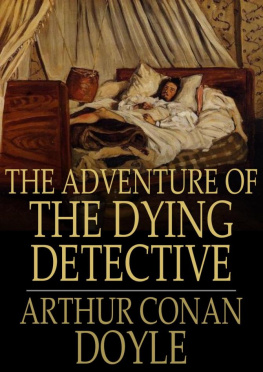Arthur Doyle - The Maracot Deep
Here you can read online Arthur Doyle - The Maracot Deep full text of the book (entire story) in english for free. Download pdf and epub, get meaning, cover and reviews about this ebook. genre: Science fiction. Description of the work, (preface) as well as reviews are available. Best literature library LitArk.com created for fans of good reading and offers a wide selection of genres:
Romance novel
Science fiction
Adventure
Detective
Science
History
Home and family
Prose
Art
Politics
Computer
Non-fiction
Religion
Business
Children
Humor
Choose a favorite category and find really read worthwhile books. Enjoy immersion in the world of imagination, feel the emotions of the characters or learn something new for yourself, make an fascinating discovery.
- Book:The Maracot Deep
- Author:
- Genre:
- Rating:5 / 5
- Favourites:Add to favourites
- Your mark:
- 100
- 1
- 2
- 3
- 4
- 5
The Maracot Deep: summary, description and annotation
We offer to read an annotation, description, summary or preface (depends on what the author of the book "The Maracot Deep" wrote himself). If you haven't found the necessary information about the book — write in the comments, we will try to find it.
The Maracot Deep — read online for free the complete book (whole text) full work
Below is the text of the book, divided by pages. System saving the place of the last page read, allows you to conveniently read the book "The Maracot Deep" online for free, without having to search again every time where you left off. Put a bookmark, and you can go to the page where you finished reading at any time.
Font size:
Interval:
Bookmark:
Arthur Conan Doyle
The Maracot Deep
(1929)
Chapter 1
Since these papers have been put into my hands to edit, I will begin by reminding the public of the sad loss of the steamship Stratford, which started a year ago upon a voyage for the purpose of oceanography and the study of deep-sea life. The expedition had been organized by Dr. Maracot, the famous author of Pseudo-Coralline Formations and The Morphology of the Lamellibranchs. Dr. Maracot had with him Mr. Cyrus Headley, formerly assistant at the Zoological Institute of Cambridge, Massachusetts, and at the time of the voyage Rhodes Scholar at Oxford. Captain Howie, an experienced navigator, was in charge of the vessel, and there was a crew of twenty-three men, including an American mechanic from the Merribank Works, Philadelphia.
This whole party has utterly disappeared, and the only word ever heard of the ill-fated steamer was from the report of a Norwegian barque which actually saw a ship, closely corresponding with her description, go down in the great gale of the autumn of 1926. A lifeboat marked Stratford was found later in the neighbourhood of the tragedy, together with some deck gratings, a lifebuoy, and a spar. This, coupled with the long silence, seemed to make it absolutely sure that the vessel and her crew would never be heard of more. Her fate is rendered more certain by the strange wireless message received at the time, which, though incomprehensible in parts, left little doubt as to the fate of the vessel. This I will quote later.
There were some remarkable points about the voyage of the Stratford which caused comment at the time. One was the curious secrecy observed by Professor Maracot. He was famous for his dislike and distrust of the Press, but it was pushed to an extreme upon this occasion, when he would neither give information to reporters nor would he permit the representative of any paper to set foot in the vessel during the weeks that it lay in the Albert Dock. There were rumours abroad of some curious and novel construction of the ship which would fit it for deep-sea work, and these rumours were confirmed from the yard of Hunter and Company of West Hartlepool, where the structural changes had actually been carried out. It was at one time said that the whole bottom of the vessel was detachable, a report which attracted the attention of the underwriters at Lloyds, who were, with some difficulty, satisfied upon the point. The matter was soon forgotten, but it assumed an importance now when the fate of the expedition has been brought once more in so extraordinary manner to the notice of the public.
So much for the beginning of the voyage of the Stratford. There are now four documents which cover the facts so far as they are known. The first is the letter which was written by Mr. Cyrus Headley, from the capital of the Grand Canary, to his friend, Sir James Talbot, of Trinity College, Oxford, upon the only occasion, so far as is known, when the Stratford touched land after leaving the Thames. The second is the strange wireless call to which I have alluded. The third is that portion of the log of the Arabella Knowles which deals with the vitreous ball. The fourth and last is the amazing contents of that receptacle, which either represent a most cruel and complex mystification, or else open up a fresh chapter in human experience the importance of which cannot be exaggerated. With this preamble I will now give Mr. Headleys letter, which I owe to the courtesy of Sir James Talbot, and which has not previously been published. It is dated October 1st, 1926.
I am mailing this, my dear Talbot, from Porta de la Luz, where we have put in for a few days of rest. My principal companion in the voyage has been Bill Scanlan, the head mechanic, who, as a fellow-countryman and also as a very entertaining character, has become my natural associate. However, I am alone this morning as he has what he describes as a date with a skirt. You see, he talks as Englishmen expect every real American to talk. He would be accepted as the true breed. The mere force of suggestion makes me guess and reckon when I am with my English friends. I feel that they would never really understand that I was a Yankee if I did not. However, I am not on those terms with you, so let me assure you right now that you will not find anything but pure Oxford in the epistle which I am now mailing to you.
You met Maracot at the Mitre, so you know the dry chip of a man that he is. I told you, I think, how he came to pitch upon me for the job. He inquired from old Somerville of the Zoological Institute, who sent him my prize essay on the pelagic crabs, and that did the trick. Of course, it is splendid to be on such a congenial errand, but I wish it wasnt with such an animated mummy as Maracot. He is inhuman in his isolation and his devotion to his work. The worlds stiffest stiff, says Bill Scanlan: And yet you cant but admire such complete devotion. Nothing exists outside his own science. I remember that you laughed when I asked him what I ought to read as a preparation, and he said that for serious study I should read the collected edition of his own works, but for relaxation Haeckels Plankton-Studien.
I know him no better now than I did in that little parlour looking out on the Oxford High. He says nothing, and his gaunt, austere face the face of a Savonarola, or rather, perhaps, of a Torquemada never relapses into geniality. The long, thin, aggressive nose, the two small gleaming grey eyes set closely together under a thatch of eyebrows, the thin-lipped, compressed mouth, the cheeks worn into hollows by constant thought and ascetic life, are all uncompanionable. He lives on some mental mountaintop, out of reach of ordinary mortals. Sometimes I think he is a little mad. For example, this extraordinary instrument that he has made but Ill tell things in their due order and then you can judge for yourself.
Ill take our voyage from the start. The Stratford is a fine seaworthy little boat, specially fitted for her job. She is twelve hundred tons, with clear decks and a good broad beam, furnished with every possible appliance for sounding, trawling, dredging and tow-netting. She has, of course, powerful steam winches for hauling the trawls, and a number of other gadgets of various kinds, some of which are familiar enough, and some are strange. Below these are comfortable quarters with a well fitted laboratory for our special studies.
We had the reputation of being a mystery ship before we started, and I soon found that it was not undeserved. Our first proceedings were commonplace enough. We took a turn up the North Sea and dropped our trawls for a scrape or two, but, as the average depth is not much over sixty feet and we were specially fitted for very deep-sea work, it seemed rather a waste of time. Anyhow, save for familiar table fish, dog-fish, squids, jelly-fish and some terrigenous bottom deposits of the usual alluvial clay-mud, we got nothing worth writing home about. Then we rounded Scotland, sighted the Faroes, and came down the Wyville-Thomson Ridge, where we had better luck. Thence we worked south to our proper cruising-ground, which was between the African coast and these islands. We nearly grounded on Fuert-Eventura one moonless night, but save for that our voyage was uneventful.
During these first weeks I tried to make friends with Maracot, but it was not easy work. First of all, he is the most absorbed and absent-minded man in the world. You will remember how you smiled when he gave the elevator boy a penny under the impression that he was in a street car. Half the time he is utterly lost in his thoughts, and seems hardly aware of where he is or what he is doing. Then in the second place he is secretive to the last degree. He is continually working at papers and charts, which he shuffles away when I happen to enter the cabin. It is my firm belief that the man has some secret project in his mind, but that so long as we are due to touch at any port he will keep it to himself. That is the impression which I have received, and I find that Bill Scanlan is of the same opinion.
Font size:
Interval:
Bookmark:
Similar books «The Maracot Deep»
Look at similar books to The Maracot Deep. We have selected literature similar in name and meaning in the hope of providing readers with more options to find new, interesting, not yet read works.
Discussion, reviews of the book The Maracot Deep and just readers' own opinions. Leave your comments, write what you think about the work, its meaning or the main characters. Specify what exactly you liked and what you didn't like, and why you think so.

